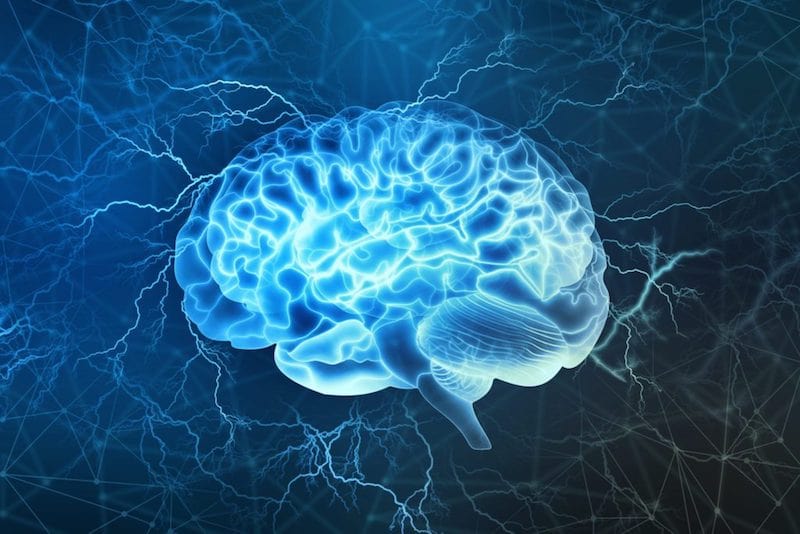Every year, on September 21, the world recognizes World Alzheimer’s Day with the intent of raising awareness of the disease, common symptoms, causes, and treatment options. Though this condition is less spoken about, it is the most common form of dementia and accounts for 60 % to 70% of total cases worldwide.1 Alzheimer’s mostly affects older adults, and some cases can also be found in people in their 30s or 40s. When this condition occurs in those under the age of 65, it is termed early-onset Alzheimer’s disease.2
What’s shocking is that globally, at least 50 million people are believed to be living with Alzheimer’s or some form of dementia. And it is said that if breakthroughs do not take place in the coming years, the rate of patients with Alzheimer’s could surpass 152 million by 2050.3 Thus, if more and more emphasis is placed on early diagnosis of Alzheimer’s, it can make a huge difference to the lives of those enduring the disease, as well as the caregivers.4
Before we dive into the details more, let us discover what Alzheimer’s disease is!
What is Alzheimer’s Disease?
Alzheimer’s is a progressive neurodegenerative condition. The disease critically affects memory, thinking, organizing, and learning skills, and eventually disturbs a person’s ability to carry out simple day-to-day functions5. Although age is one of the biggest risk factors for Alzheimer’s, it is not an inevitable part of the biological aging process. However, it’s an illness whose symptoms worsen gradually6. In fact, researchers believe that the disease process can go on for a decade or even longer before the initial symptoms of Alzheimer’s come to light7.
When family members and friends of the affected do start noticing the memory problems, they are often diagnosed with mild cognitive impairment (MCI). This is the phase when the intellectual function is impacted but the ability to do activities and live independently stays intact as the brain compensates for disease-related changes.. People with MCI are at a high risk for progressing to dementia.
Moreover, since dementia due to Alzheimer’s disease advances to late stages, those affected with the disease cannot recognize their family and friends, initiate a conversation, or care for themselves.
What are the Warning Signs and Symptoms of Alzheimer’s Disease?
There are multiple symptoms of Alzheimer’s disease that vary from case to case and deteriorate over time. Some of them include:8
- Confusion about events, places, and time
- Trouble performing familiar tasks
- Memory loss (one of the initial symptoms of Alzheimer’s)
- Repeating the same questions
- Trouble paying bills and managing money
- Trouble with sleep
- Getting lost/wandering
- Changes in behavior and personality including anxiety, agitation, and aggression
- Having unsubstantiated suspicion about caregivers, family, and friends
- Difficulty in multitasking like cooking and dressing
- Occurrences of hallucinations, paranoia, or delusions
- Difficulty speaking or striking a conversation
- Difficulty swallowing
- Trouble with walking, reading, writing, and working with numbers
- Withdrawing from social activities
Medical experts across the globe are acquiring more diagnostic tools since researchers are discovering new biomarkers in the brain, blood, and cerebrospinal fluid that can help diagnose the condition earlier.
What Causes Alzheimer’s Disease?9
There are several layers involved in causing a severe disease like Alzheimer’s, including amyloid plaque deposits, neuronal death, neurofibrillary tangles, and Tau proteins.
- Amyloid plaques are deposits formed towards the exterior of the brain cells and they stop the brain from sending clear signals.
- Neurofibrillary tangles are deposits formed in the interior of the brain cells and they kill the cells by blocking food and energy, leading to dementia, which worsens over time.
- Neuronal death causes shrinking in the cortex (outer layer of the brain), which is vital to language, memory, and judgment. Alzheimer’s disease is distinguished by this shrinkage. Tau deposits, found inside brain cells, form insoluble filaments that accumulate as neurofibrillary tangles in Alzheimer’s disease. In normal conditions, tau regulates the maintenance of the structural stability of microtubules. Whereas in the affected brain, tau is abnormally hyperphosphorylated, causing microtubules to disassemble.10
In most cases, researchers are still unsure of what triggers the development of plaques, tangles, and other chemical changes linked with sporadic Alzheimer’s disease. Assumed causes include environmental factors, the body’s own immune system, or chemical imbalances.
How is Alzheimer’s Disease Treated?
Though Alzheimer’s disease is irreversible, there are medications and supportive treatments that help with memory and behavior problems. The U.S. Food and Drug Administration (FDA) has approved four drugs to treat symptoms of Alzheimer’s disease. While the drugs may help improve memory and curtail confusion, they cannot entirely stop the condition from degrading over time.
Patients experiencing mild to moderate Alzheimer’s are usually prescribed Galantamine, Rivastigmine), and Donepezil. Another option Memantine, is prescribed to patients with moderate to severe symptoms of Alzheimer’s. This can help patients to perform some basic functions slightly longer than they would without it. Alternatively, a combination of donepezil and memantine, is also recommended for some patients with this condition.11 However, some side effects of memantine like headache and dizziness may prevent people from using this medicine for Alzheimer’s.
People with Alzheimer’s are also likely to be prescribed other medications to manage symptoms. This may include antidepressants to control depression, anxiety or improve sleep, Antipsychotics, if prescribed, are mostly used to manage severe signs like agitation, aggression, or delusions. With this, symptomatic therapy and disease-modifying therapy may also be considered, which help boost cognitive performance and slow the progression of the disease. The medicines approved by the FDA for the treatment of Alzheimer’s fall in the former category and they offer measurable symptomatic benefits.12 However, these medications and treatments should be consumed only under the guidance of a specialist.
Can you Prevent Alzheimer’s Disease?13 14
There’s no specific way to prevent Alzheimer’s disease. But you can lower the risk of the condition by looking after your health.
- Your heart – If it’s good for your heart, it would be good for your brain. So, maintain a healthy and nutritious diet and avoid smoking.
- Your mind – An active mind builds brain cells and fortifies their connections. So, remember to socialize, play puzzles and crosswords, and learn new activities like a language.
- Your body – Regular physical activity improves blood flow to the brain, so maintain an active lifestyle.
Conclusion
If you know someone who’s experiencing memory loss or other signs of Alzheimer’s, consider seeing a doctor at the earliest. The sooner the condition gets diagnosed and treated, the better the chances of improvement. As a caregiver of an Alzheimer’s patient, it may be difficult and draining for you to go through this phase. Make sure you take out the time to socialize and do activities that interest you. Allow yourself the space to rest, recover, and embrace your loved one15.
Fonti:
1. https://www.who.int/news-room/fact-sheets/detail/dementia#:~:text=Alzheimer’s%20disease%20is%20the%20most,dependency%20among%20older%20people%20globally.
2. https://www.hopkinsmedicine.org/health/conditions-and-diseases/alzheimers-disease/earlyonset-alzheimer-disease
3. https://www.brightfocus.org/alzheimers/article/alzheimers-disease-facts-figures
4. https://www.mayoclinic.org/diseases-conditions/alzheimers-disease/in-depth/alzheimers/art-20048075
5. https://www.nia.nih.gov/health/what-alzheimers-disease
6. https://www.mayoclinic.org/diseases-conditions/alzheimers-disease/symptoms-causes/syc-20350447
7. https://my.clevelandclinic.org/health/diseases/9164-alzheimers-disease#:~:text=In%20fact%2C%20scientists%20believe%20the,mild%20cognitive%20impairment%20(MCI)
8. https://www.hopkinsmedicine.org/health/conditions-and-diseases/alzheimers-disease/alzheimers-disease-what-you-need-to-know-as-you-age
9. https://www.nhs.uk/conditions/alzheimers-disease/causes/#:~:text=Alzheimer’s%20disease%20is%20thought%20to,form%20tangles%20within%20brain%20cells.
10. https://pubmed.ncbi.nlm.nih.gov/20553310/#:~:text=Tau%2C%20the%20microtubule%2Dassociated%20protein,the%20structural%20stability%20of%20microtubules.
11. https://www.psychiatry.org/patients-families/alzheimers/what-is-alzheimers-disease#section_2
12. https://www.sciencedirect.com/topics/medicine-and-dentistry/treatment-of-alzheimers-disease
13. https://www.elcaminohealth.org/stay-healthy/blog/can-you-prevent-alzheimers-disease
14. https://www.alz.org/alzheimers-dementia/research_progress/prevention
15. https://www.mayoclinic.org/diseases-conditions/alzheimers-disease/diagnosis-treatment/drc-20350453

